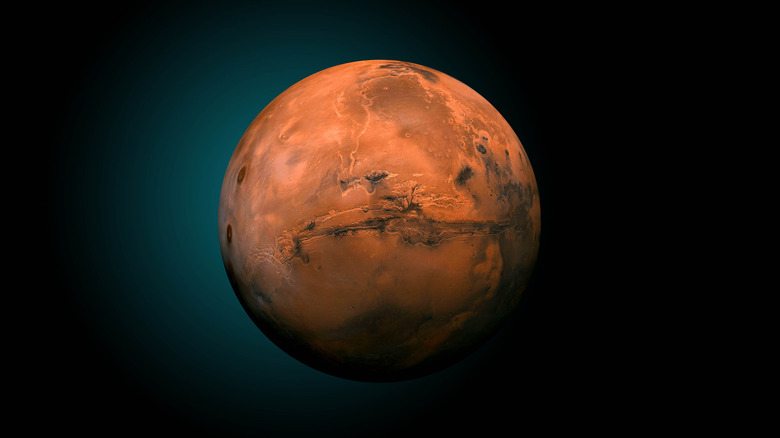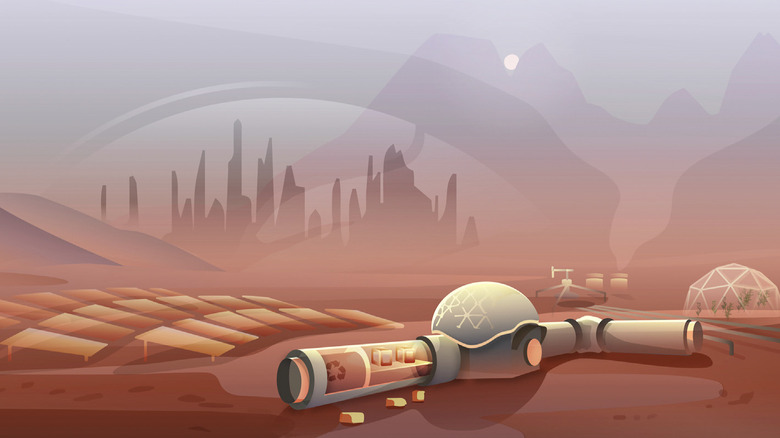This Is Our Best Bet For Settling On Mars, According To Scientists
If we're ever going to send people to Mars, there are some technological challenges to meet first. One of the most basic requirements for a mission to the red planet is power, needed for everything from sending communications to running heat and oxygen systems to keep future Mars visitors alive. Traditionally, many space agencies have focused on the idea of nuclear power for future crewed missions, such as NASA's plan to create a nuclear fission system to generate power on the moon (via NASA). But now, a new study suggests that when it comes to Mars, we might be better off making use of a different source of power: the sun.
The study from researchers at the University of California, Berkeley, argues that advances in solar power technology make it more efficient to use solar power than nuclear power for a future crewed Mars mission. "This paper takes a global view of what power technologies are available and how we might deploy them, what are the best-use cases for them and where do they come up short," explained one of the study's authors, Anthony Abel (via UC Berkeley). "If humanity collectively decides that we want to go to Mars, this kind of systems-level approach is necessary to accomplish it safely and minimize cost in a way that's ethical. We want to have a clear-eyed comparison between options, whether we're deciding which technologies to use, which locations to go to on Mars, how to go and whom to bring."
A head-to-head power competition
The researchers compared nuclear versus solar for a 16-month mission to Mars (the most likely time frame for such a mission given the time at which Earth and Mars are close together and the travel time between the two) and looked at what kind of power generation could be expected using solar technology given what we know about Mars' climate.
For areas around the Mars equator, where most crewed missions would be considered, solar is a viable choice. Even though it only works during the day and Mars is further away from the sun than Earth is, making sunlight there comparatively weak, there is enough energy for missions like rovers and orbiters to operate using solar power. And the big advantage of solar power over nuclear power, beyond improved technology, is that panels are lightweight and efficient compared to large, heavy nuclear power systems.
"The silicon panels that you have on your roof, with steel construction, glass backing, et cetera, just won't compete with the new and improved nuclear, but newer lightweight, flexible panels all of a sudden really, really change that conversation," Abel said (via UC Berkeley).
Future Mars explorers would still need to prepare for events like the dust storms that periodically whip across Mars and cover the solar panels. But crews could allow for this by using some solar energy to produce hydrogen gas, which can be used in fuel cells. These could sustain a crew through periods of low solar power generation.

